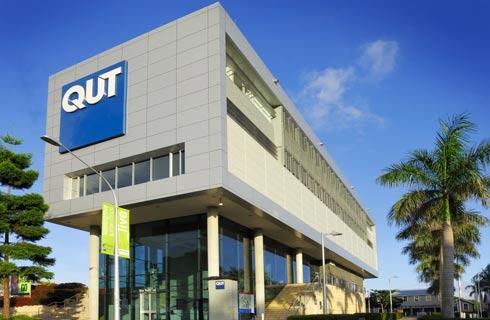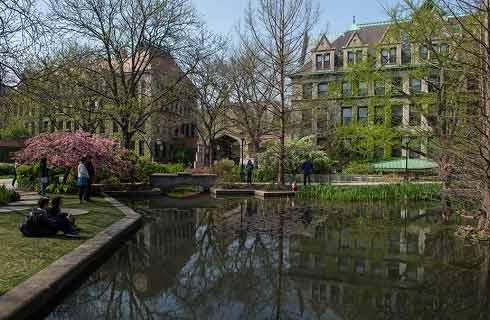BSc (Hons) Pharmacology with Foundation Year

学历文凭
Bachelor Degree with Honours

专业院系
School of Pharmacy

开学时间

课程时长

课程学费

国际学生入学条件
IDP—雅思考试联合主办方

雅思考试总分
- 雅思总分:
- 托福网考总分:
- 托福笔试总分:
- 其他语言考试:
CRICOS代码: B213
申请截止日期: 请与IDP联系 以获取详细信息。
课程简介
相关申请
 预科
预科 奖学金
奖学金 实习机会
实习机会 在校学习
在校学习 跨境学习
跨境学习 校园授课-线上开始
校园授课-线上开始 在线/远程学习
在线/远程学习
开学时间&学费
学费信息仅供参考,请与IDP联系以获取详细信息
| 开学时间 | 时长 | 学费 | 地点 |
|---|
关于胡弗汉顿大学

位于英国伯明翰的伍尔弗汉普顿大学是一所国际大学,190多年来一直提供卓越的学术成果。它有来自全球130多个国家的2500多名学生。该大学有三个主要校区。沃尔弗汉普顿市、特尔福德和沃尔索尔。伍尔弗汉普顿靠近英国第二大城市伯明翰,乘坐火车只需18分钟就能到达。距离曼彻斯特有70分钟的路程,90分钟就可以到达伦敦。与英国其他城市相比,伍尔弗汉普顿的生活成本也很便宜。在过去的几年里,该大学对其校园进行了大量投资,包括建造尖端工程设施、罗莎琳-富兰克林科学大楼、斯沃拉吉-保罗勋爵大楼(商学院)、网络中心、斯普林菲尔德建筑和建筑环境超级校园,以及马奇卓越医疗中心。伍尔弗汉普顿大学对其历史感到自豪。自1827年以来,它作为一个机构已经成长和改变,成为今天的全球性大学。在英国的中心位置,它为来自世界各地的学生提供机会。世界领先的学术界人士帮助学生增长知识、技能和信心,在全球经济中茁壮成长。每年,该大学欢迎来自130多个国家/地区的学生。屡获殊荣的学生支持服务确保该大学继续成为一个有帮助和受欢迎的全球机构。它已被质量保证机构授予最高荣誉,并在2019年QS Stars™计划中被授予总体四星,其中教学、就业能力、国际化和包容性方面获得最高五颗星。毕业生结果发现,其最近一批英国毕业生中,超过90%的人就业、受教育或经营自己的企业,超过了全国平均水平。
本校相关课程

MA Social Work
学历文凭
Masters Degree (Taught)
开学日期
课程费用总额


Master of Public Health
学历文凭
Masters Degree (Taught)
开学日期
课程费用总额


PGCE Primary Education
学历文凭
Graduate Certificate
开学日期
课程费用总额


PGCE Post Compulsory Education
学历文凭
Graduate Certificate
开学日期
课程费用总额


PGCE Secondary Education - Physics
学历文凭
Graduate Certificate
开学日期
课程费用总额


MSc Occupational Psychology
学历文凭
Masters Degree (Taught)
开学日期
课程费用总额

其他相关课程

MSc Biotechnology
 林肯大学
林肯大学泰晤士高等教育世界大学排名:771
学历文凭
Masters Degree (Taught)
开学日期
课程费用总额


法学和分析科学(荣誉)理学士学位
 哈德斯菲尔德大学
哈德斯菲尔德大学泰晤士高等教育世界大学排名:575
学历文凭
Bachelor Degree with Honours
开学日期
课程费用总额


理学研究生文凭-植物生物技术
 奥塔哥大学
奥塔哥大学学历文凭
Postgraduate Diploma
开学日期
课程费用总额


医学科学(荣誉学位)学士学位-地理
 悉尼大学
悉尼大学泰晤士高等教育世界大学排名:54
学历文凭
Bachelor Degree with Honours
开学日期
课程费用总额


理学研究生证书-未声明-SCI
 昆士兰大学
昆士兰大学泰晤士高等教育世界大学排名:80
学历文凭
Graduate Certificate
开学日期
课程费用总额


Bachelor of Science in Biotechnology
 乐卓博大学
乐卓博大学泰晤士高等教育世界大学排名:267
学历文凭
Bachelor Degree
开学日期
课程费用总额










